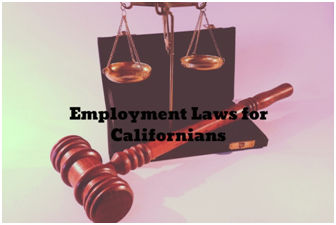
One thing employers can expect from their employees is the request for a leave of absence. There are laws in place to protect employees who need to take time off. The federal Family and Medical Leave Act (FMLA) allows an employee to take time off to be a caregiver or handle health or medical related duties that might keep them from performing their regular jobs.
There are a few states that have created their own version of the FMLA. The state of California is one of them. The California Family Rights Act (CFRA) is like the FMLA, but there are some overlapping and conflicting worker rights and company responsibilities relating to family leave in California. A knowledgeable employment law attorney can explain the similarities and differences and how they might affect your employees.
Under, the FMLA and the CFRA, companies with 50 or more employees are required to give qualified employees up to 12 weeks of unpaid leave for the following situations:
- The birth of or caring for an employee’s child
- Adoption or foster care of children involving the employee
- Caring for a family member with a serious health or medical condition
- Self-care of the employee battling a serious health or medical condition
According to the CFRA, employees must meet the specific requirements to be eligible for California family and leave. The employee must have worked at least 12 months and must have performed at least 1250 hours in the 12 months prior to taking the leave time.
California Pregnancy Disability Leave
This law requires employers with five or more employees to give up to 12 weeks or 4 months of unpaid disability leave due to pregnancy, the birth of a child, or a related sickness.
California Paid Family Leave
This law requires companies to give up to 6 weeks of paid family leave to qualified workers who take leave for the care of a family member, which includes a seriously ill spouse, child, parent or registered domestic partner.
Election Voting Leave
California law requires companies to provide employees with ample time off to cast their votes in an election. The designated time off should be before the employee’s work schedule start or after it ends. Employers are only required to pay their workers up to two hours of time off to cast their vote. On the other hand, employees must give their employer at least three days notification that they will be taking time off to vote.
Bereavement Leave
Bereavement leave is designed to allow employees to take time off to grieve the death or prepare for a funeral of a close relative (child, parent or spouse). California law does not require a company to provide bereavement leave for its employees; however, many companies may allow employees to take time under those circumstances.
Vacation Leave
In California, companies are not required to offer their employees vacation benefits, whether it be paid or unpaid. Many companies do provide their employees with vacation leave. If your company offers vacation leave benefits, the company must follow the terms of employment contracts or company policy and more importantly, the company cannot have a “use it or lose it” policy, although it may have a cap on the number of vacation days an employee can accrue. This is a very significant distinction.
Leave laws are often complex, and companies should seek the help of an attorney to help them better understand employment leave laws. If you are an employee who feels your rights to take a leave of absence have been violated by an employer or if you are an employer who wants to make sure you are complying with the statutes of the FMLA or CFRA contact the highly reputable Hakim Law Group in Los Angeles, at 310.993.2203 or visit www.HakimLawGroup.com for further information.

